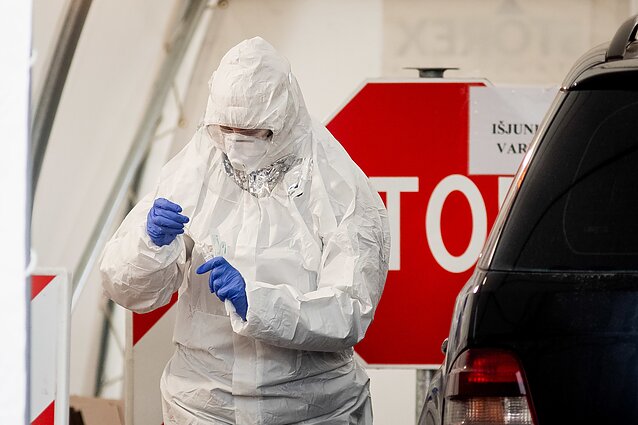
Unemployment Trends
As Lithuania’s Employment Service reports the highest unemployment level this year, the country’s Social Security and Labour Minister Linas Kukuraitis says the number of working people is growing following the lockdown, adding that the situation in the country’s labour market is much better than in many European countries.
The official unemployment rate in Lithuania stood at 13.3% on August 17, the highest level this year. The minister sees positive tendencies in the statistics showing that more people are now being hired than dismissed, and wages continue to grow, despite the lockdown. “The situation in the labour market is fairly good and is much better than in the majority of Europe, and is significantly better than during the crisis we had a decade ago,” Kukuraitis told the national radio, LRT.
Coronavirus Cases Increase
Preliminary figures show 48 new coronavirus cases in Lithuania for the past 24 hours, an epidemiologist from the National Public Health Center (NPHC) said on August 28.
“According to preliminary data as of this morning, the daily number of cases has increased to 48,” Daiva Razmuvienė told LRT Radio. She said the daily average for August was about 25 cases. The epidemiologist attributed the spike in coronavirus infections to people being too relaxed about safety guidelines in the summer.This is the second-highest daily tally after the April 19 record high of 59 cases.
ES Commits to AstraZeneca Vaccine
The European Commission has signed a contract with the British-Swedish pharmacy company AstraZeneca for a supply of at least 300 million doses of COVID-19 vaccine it is developing. In a press release, the EC stated that through the contract, all member states will be able to purchase 300 million doses of the AstraZeneca vaccine, with an option for further 100 million doses, to be distributed on a population-based pro-rata basis.
Lithuanian Health Minister Aurelijus Veryga posted on his personal Facebook page that Lithuania would get “just over 1.8 million doses of the vaccine”.
The Commission continues talks with other vaccine manufacturers and is likely to sign contracts with Sanofi-GSK, Johnson & Johnson, CureVac and Moderna shortly, according to Veryga.
AstraZeneca said on Tuesday that it had started clinical trials of an antibody combination called AZD7442, which is being developed for the prevention and treatment of COVID-19. The trial includes up to 48 healthy participants aged 18-55 and will assess the safety and tolerability of the drug. “The treatment has the potential to be given as a preventative option for people exposed to the virus, and to treat and prevent disease progression in patients already infected by the virus,” the company said in a press release. The results of the trials are expected by the end of 2020.
Threats from Lukashenko
On August 28, Alexander Lukashenko threatened to impose sanctions on Warsaw and Vilnius and redirect the country’s exports away from the Lithuanian port of Klaipėda. He told the Belarusian state news agency BelTa that he has instructed the government to work out measures to redirect all trade flows from Lithuanian ports to others. “We will show them their place,” he said.
Currently, the majority of Belarusian exports transit via Lithuania by rail and through the port of Klaipėda. Lithuania’s state-owned railway company, Lietuvos Geležinkeliai, also carries Belarusian imports. Lithuania plans to impose national sanctions on some 118 Belarusian officials, and together with Poland and the other Baltic states has been a staunch advocate for EU-wide action against Lukashenko’s regime.
Lithuania’s sanctions on Belarus will be confirmed following consultations with Latvia and Estonia. The national sanctions have no financial leverage, and only include entry bans for officials responsible for vote-rigging and violence against protesters in Belarus.
The European Union is also considering introducing sanctions on Belarusian officials, which, accordng to Foreign Affairs Minister Linas Linkevičius, would be more effective as they also include financial measures.





























